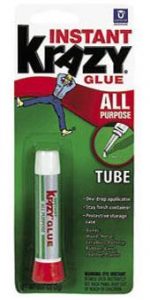 Top Class Action Lawsuits
Top Class Action Lawsuits
Oracle not seeing labor law clearly? Oracle America Inc. is facing a $150 million California labor law class action filed in California federal court over allegations that it knowingly shorted its sales force on commissions of past sales.
File by former Oracle sales representative Marcella Johnson, the lawsuit asserts that Oracle alerted her she would have a negative commission balance of about $20,000 after it “re-planned” how much she would be paid for sales she made in 2013. According to Johnson, she had already received payment of commissions in November and December 2013 under a previously stated “comp plan.” However, Oracle had subsequently applied the new rate for calculating commissions retroactively, to June 2013, the lawsuit states.
“Oracle’s Compensation Department informed plaintiff that pursuant to the T&C [Terms and Conditions of Incentive Compensation], if she stopped working for Oracle, Oracle would have the right to collect the negative balance from her, including through a lawsuit,” the complaint states.
The lawsuit goes on to state that “Plaintiff could not afford to repay Oracle…As a result, plaintiff felt she had no choice but to continue working for Oracle for months without being paid any commissions. The new commissions she earned were levied by Oracle to offset the ‘negative commission balance’ resulting from retroactive imposition of the inferior commission rate.”
Johnson alleges that employees are coerced by Oracle into accepting re-plans by giving the employees just 24 hours to accept the new commission terms and threatening to withhold paid pending commissions.
“Even if a bold employee refuses to agree to an inferior replan, Oracle barrels ahead anyway, applying the re-plan terms to both past and future sales,” the lawsuit states.
Allegedly, through this practice, Oracle has been able to withhold millions of dollars in due commission wages. The commissions are reduced to align the employee pay with the company’s “financial forecasts and bottom line goals.”
The Oracle lawsuit alleges causes of action for failure to pay commission wages in breach of California labor code and contract, failure to pay wages upon separation, and unfair competition. Marcella Johnson is seeking certification of the claims as a class action, restitution, statutory penalties, an award of damages in excess of $150 million and related legal fees and costs.
The case is Marcella Johnson v. Oracle America Inc., number 3:17-cv-00725, in the U.S. District Court, Northern District of California.
Sprint’s at it again? Maybe… they got slapped with a consumer fraud class action lawsuit this week over allegations it deceives customers regarding savings in its “cut-your-cell-phone-bill-in-half” promotion, and fails to deliver as advertised.
Filed in California federal court by Sylvia Nixon of Los Angeles County, the lawsuit claims Sprint deceived her into changing cell phone services in May then failed to deliver on alleged promises to cut her bill in half, pay termination fees she says cost her $1,500, and give her three $350 Visa gift cards.
Nixon claims that had she been aware that Sprint’s “sales tactics rely on falsities that have a tendency to mislead and deceive a reasonable customer,” she would not have changed carriers.
“Defendant misrepresented and falsely advertised to plaintiff and others similarly situated that it would provide these services when defendant had no intention of doing so,” the complaint states. Further, “Defendant’s conduct will continue to cause irreparable injury to consumers unless enjoined or restrained.”
According to statements from 2014 promoting Sprint’s service-change enticements, Sprint indicates that it offers Visa gift cards of up to $350 for each line switched in order to pay for termination fees.
Regarding the cards, the lawsuit states that Sprint “failed to provide … all three $350 visa cards.” Sprint provided her with two, “and even charged the plaintiff for them.” While the complaint does not say how much Nixon paid, nor does it specify the degree to which Sprint failed to offer the promised rate, it does state that Nixon’s rate with Sprint was “well over fifty percent of what she had previously paid.”
The Sprint lawsuit seeks certification of a class of all Sprint customers who accepted the offers, an injunction on current practices, unspecified actual damages, attorneys’ fees and punitive damages. Nixon is also asking the court to make Sprint “at its own cost, notify all class members of the unlawful and deceptive conduct therein,” and to force the company to amend its advertising.
“[T]he injury suffered by plaintiff and members of the class is not an injury which these consumers could reasonably have avoided,” the complaint states. “Plaintiff’s reliance upon defendant’s deceptive statements is reasonable due to the unequal bargaining powers of defendant and plaintiff. For the same reason, it is likely that defendant’s fraudulent business practice would deceive other members of the public.”
The case is Nixon v. Sprint Communications Inc., case number 2:17-cv-01149, in the U.S. District Court for the District of Central California.
Top Settlements
Here’s big news – in case you missed it – DuPont and Chemours Co have reached a $671 million settlement in multi-district litigation brought against them, that alleged the chemical manufacturers deliberately dumped carcinogenic chemicals, specifically Teflon ingredient C8 or PFOA, into the Ohio River. Seriously.
Their actions, according to the allegations, resulted in 70,000 people being put at risk for cancer as the chemical contaminated their drinking water.
The settlement was preceded by three previous trials brought against DuPont and which had awarded damages to plaintiffs who alleged because of the decades of dumping C8 into the air and water around the plant, DuPont’s actions had resulted in clusters of cancer in six Ohio water districts. DuPont and Chemours, which now owns the plant in West Virginia, each agreed to pay $335.35 million in cash to resolve its obligations concerning about 3,500 total claims.
The first cases were brought in 2001, with allegations DuPont contaminated the drinking supply of 70,000 people in and around the Ohio River where the DuPont plant was situated. The company has already paid or committed to pay $350 million for water filtration systems in the affected communities, health data collection for the class and health studies, the statement said.
Further, Chemours has agreed to pay the initial $25 million of future PFOA costs not covered by the settlement annually for the next five years. DuPont will cover additional amounts up to $25 million, according to the company statement.
DuPont was facing a total of $19.7 million in liability. The first bellwether trial involving plaintiff Carla Bartlett, settled in October 2015 with an award of $1.6 million in compensatory damages. The second bellwether case was brought by plaintiff David Freeman and saw a $5.1 million award in compensation plus a $500,000 punitive award.
Kenneth Vigneron was the plaintiff in the third case. He received $2 million in compensatory damages in December, followed by the a further $10.5 million in punitive damages awarded by the jury. Vigneron’s case alleged that his testicular cancer resulted from exposure to the chemicals DuPont dumped into the water.
According to a statement from a law firm representing the plaintiffs, “The really sad part of this whole mess is that it would have cost DuPont almost nothing to properly dispose of the C8 waste in a safe manner instead of irresponsibly dumping it in the river, pumping it into the ground, and spewing it up into the air. DuPont’s conduct was egregious, dumping the chemical into community water sources with full knowledge that it would likely cause cancer and other diseases among the residents,” the firm said. Notably, neither DuPont nor Chemours have admitted fault, as part of the settlement.
According to media reports, had a settlement had not been reached, US District Judge Edmund Sargus had promised to try 40 cancer cases in 2017 and had already set dates for 10 such trials and was recruiting judges from other districts to assist.
The cases are Moody v. DuPont, case number 2:15-cv-00803, and In re: E.I. du Pont de Nemours and Co. C-8 Personal Injury Litigation, case number 2:13-md-02433, both in the U.S. District Court for the Southern District of Ohio.
Ok – That’s a wrap for this week. See you at the bar!

 Top Class Action Lawsuits
Top Class Action Lawsuits Top Class Action Lawsuits
Top Class Action Lawsuits  Top Class Action Lawsuits
Top Class Action Lawsuits  Top Class Action Lawsuits
Top Class Action Lawsuits Top Class Action Lawsuits
Top Class Action Lawsuits Top Class Action Lawsuits
Top Class Action Lawsuits Top Class Action Lawsuits
Top Class Action Lawsuits Top Class Action Lawsuits
Top Class Action Lawsuits Top Class Action Lawsuits
Top Class Action Lawsuits